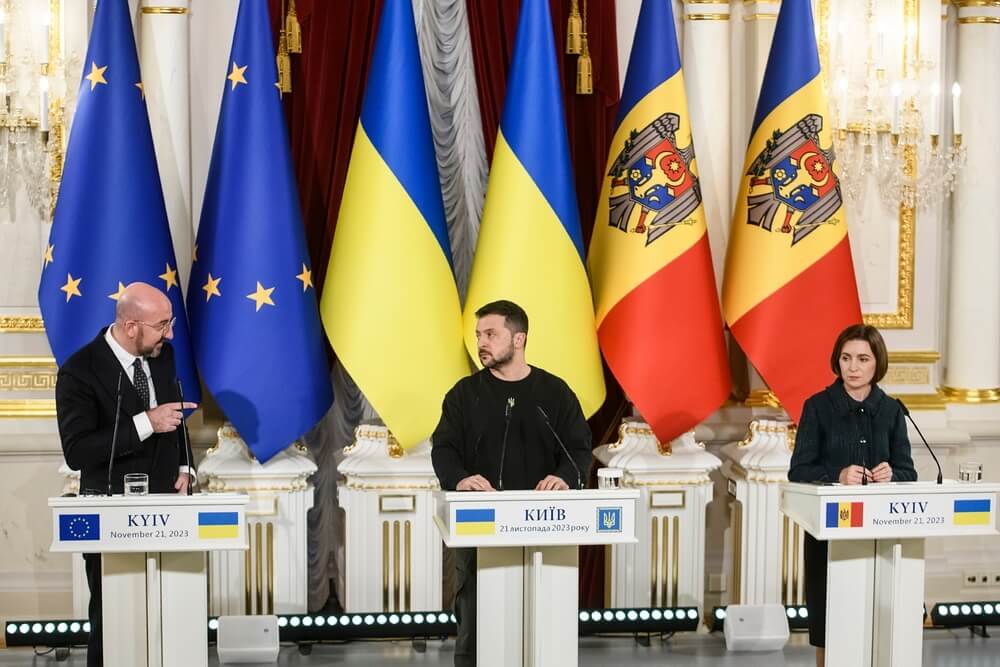Armenia is reassessing its relations with Russia, aware that choices carry significant risk. The small Caucasian state, shaken by conflicts with neighbouring Azerbaijan, has been working on separating from the historical embrace of its big neighbour after the collapse of the USSR.
But will there be anyone to help it if Russia reacts as it usually does?
Prime Minister Nikol Pashinyan repeated this week that Armenia could no longer rely on Russia as its principal defence partner and that Yerevan has been considering strengthening its military ties with the West.
He said a similar thing half a year ago: "Armenia can no longer rely on Moscow as a guarantor of its security".
The long-standing Russian presence in the Caucasus region has proven to be entirely useless in the case of Armenia.
Yerevan is particularly disappointed by the absence of any reaction from its partner when Azerbaijan took over the disputed Nagorno-Karabakh region within 24 hours, expelling hundreds of thousands of the local Armenian population.
Armenia's membership in the Collective Security Treaty Organisation (CSTO), led by Russia, did not guarantee security. Therefore, Armenia has rightly raised the question of remaining in this bloc.
Russia's open threat
PM Pashinyan's failure to attend the CSTO summit in Belarus last November was a sign that Yerevan had been considering withdrawing from "Eastern NATO" if it had not already taken that path.
However, soon after that, the government in Yerevan stated, regarding a possible withdrawal from the CSTO, that "there were no such topics on their agenda".
This situation was typical of the confusion raised by the Armenian government regarding its ties with Russia.
It was partly the result of Armenia's wanderings in search of a new strategic partner outside the Russian sphere of interest and even more of the pressures coming from Moscow whenever Yerevan deviated from the traditional pro-Russian playbook.
Vladimir Putin emphasised that it was not in Armenia's interest to leave the CSTO. These were messages that should be taken as an open threat
"The West is obviously behind it”, stated the Russian Ministry of Foreign Affairs after the refusal of the Armenian PM to come to the security summit of Russian allies.
"The West, whose plans in Ukraine have failed, is now gripping Armenia, trying to tear it away from Russia," stated the Russian ministry at the time.
Last January, Vladimir Putin emphasised that it was not in Armenia's interest to leave the CSTO. These were messages that should be taken as an open threat.
The Ukrainian scenario
In the case of Ukraine, Russia and Putin knew better than Ukraine what was in its interest and that it should not follow the path of rapprochement with the EU.
The discrepancy between the wishes of the Ukrainians and the expectations of the Kremlin opened the crisis between the 2 countries 10 years ago, the Russian annexation of Crimea and the armed invasion almost 2 years ago.
Due to the Ukrainian experience, Armenia has objective reasons to fear Russia's reaction if its moves towards leaving the traditional security framework were decisive and irreversible.
Stuck in the war with Ukraine, Russia would not have a political problem opening a focal point in Armenia if it would suit its plans to move the centre of gravity from the Ukrainian front to another nearby point.
The obstacle to doing so is more of an operational, military nature, given that it has engaged everything it has in Ukraine and that there are not enough resources for some new operations.
As long as Armenia is in the zone of silent or occasionally loud antagonism towards Moscow, it is exposed to the risk of military provocation from Russia
However, as long as Armenia is in the zone of silent or occasionally loud antagonism towards Moscow, it is exposed to the risk of military provocation from Russia.
Its goal would represent a complete political destabilisation of the country, the dethronement of the pro-Western prime minister and the formation of a pro-Russian government, for which there are many candidates in the ranks of the opposition.
Russia still has a military presence in Armenia, with its large base in the second-largest city of Gyumri, and the senior levels of the Armenian military and intelligence services are still heavily influenced by Russia.
Moldovan self-defence
Moldova was in a similar position as Armenia (and still is). It is one of the former republics of the USSR, with a similar security landscape, given the presence of about 1,500 Russian troops in the disputed region of Transnistria on the border with Ukraine.
However, Moldova took far more decisive self-defence steps than Armenia, reducing the risk of a Russian invasion. Its pro-European government has nullified the influence of the pro-Russian political opposition, and even banned the bloc's largest party.
 Moldova took far more decisive self-defence steps than Armenia, reducing the risk of a Russian invasion
Moldova took far more decisive self-defence steps than Armenia, reducing the risk of a Russian invasion
In addition, and even more significant for Armenia, Moldova is on the fast lane for EU accession with Ukraine. The negotiations were opened last December.
Armenia, however, still lacks a similar decisive response from the EU, which would discourage any Russian plans for a military solution to its uncooperative subjects in the neighbourhood.
The reluctance of Western allies to provide Armenia with political and security guarantees is fuelled by the reluctance within the country to turn more decisively away from Russia.
Under such conditions, Moscow might continue to threaten Armenia and its roughly 3 million citizens with destabilisation and perhaps military action.